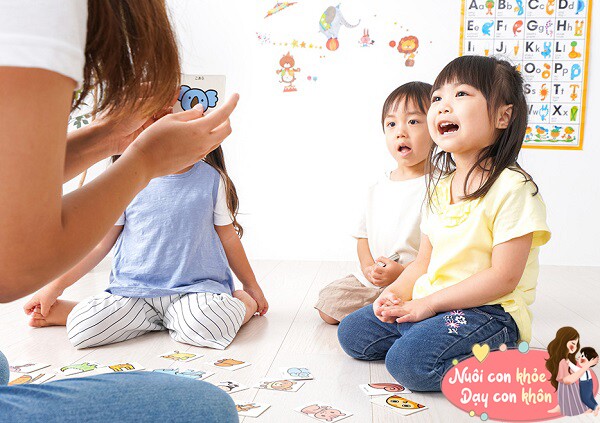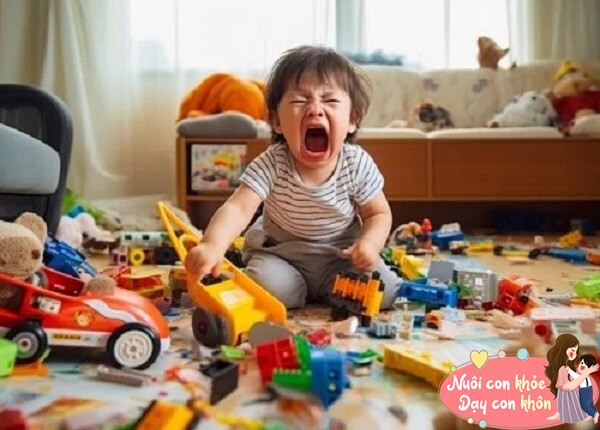It is often said that children with a high IQ are more likely to be successful, while those with a high EQ tend to be happier. However, the combination of emotional intelligence (EQ) and logical intelligence (IQ) is key to a child’s achievement in both academic and personal pursuits.
Children with high EQ are typically more emotionally intelligent, possessing a strong awareness of their own feelings and those of others. They tend to develop excellent communication skills, build solid relationships, and effectively resolve conflicts.
If your child exhibits the following four “quirky” interests, it may indicate that they have a high IQ and EQ, and it’s worth nurturing these tendencies appropriately.


Chatty Children
According to social psychologist Bandura, “Children’s abilities are enhanced through communication with others, including language expression, logical thinking, and the development of emotional intelligence. All of these skills are built on this foundation.”
In reality, when children are speaking, their brains are working at a rapid pace, thinking about what to say next and how to organize their language to convey their thoughts. These children often exhibit strong logical thinking abilities.
Additionally, children who are articulate and expressive can win over people’s hearts and are generally well-liked. Therefore, parents should refrain from hastily silencing their children’s desire to express themselves. Instead, listen patiently and respond accordingly.
Teach your children about appropriate communication, including what is and isn’t acceptable to say. This will help them develop effective communication skills and build healthy relationships. When children understand the power of words and their impact on others’ emotions, they will become more discerning in their choice of language.
They will learn to express their opinions and emotions without hurting others, creating a positive communication environment.

When children are speaking, their brains are working at high speed.

Destructive Tendencies
In 2018, Rao Yike, a high school student from Quzhou, Zhejiang, China, won the title of “Tomorrow’s Little Scientist” for the 18th time. Interestingly, her success can be attributed to her love for taking things apart since childhood.
As a young child, she was seen as mischievous by her parents because she enjoyed dismantling her toys. From dolls to mops, she would take things apart and put them back together in playful exploration. However, her parents never discouraged or suppressed her curiosity.
This freedom fostered a strong desire for discovery and a passion for creativity, leading to several nationally patented inventions later in life.
Educator Suhomlinsky once said: “The intelligence of children lies in their fingertips.” While destructive behavior can be a headache for parents, the process of dismantling objects accelerates the development of practical abilities and cognitive skills. Children who explore with their hands gain rich sensory experiences and form unique thoughts.

Dismantling objects accelerates the development of practical abilities and cognitive skills.

Solitary Pursuits
Some children prefer spending time alone, avoiding group activities and peer interactions. In the CCTV documentary “Post Zero,” a young girl named Yiyi stands out for her solitary habits. While other children played together, Yiyi chose to read, sleep, and eat alone.
To an adult, this behavior might seem lonely and antisocial. However, fast forward ten years, and Yiyi has excelled beyond her peers, displaying greater focus and dedication in her endeavors. Although still introverted, she is well-liked by her friends.
In reality, children who enjoy their own company exhibit a strong ability to concentrate. This trait is similar to the focused mindset required for learning and thinking, and it helps prevent negative habits such as skipping school, falling behind, or procrastinating on homework.
Albert Einstein displayed similar tendencies in his childhood, preferring solitude and showing little interest in playing with military toys like tanks and guns. However, his apparent aloofness did not hinder his success. Instead, he excelled in thinking and dedicated himself entirely to scientific research, ultimately achieving groundbreaking results.
Sometimes, it’s beneficial to allow children to be alone and not disturb their independent mental space. Every child has their own unique universe and interacts with the world differently. Children who can think independently are often better at discovering their passions and developing their potential.

Playful Learners
Professor Li Meijin asserts that children who know how to play tend to perform better academically. During play, the body releases higher levels of dopamine and serotonin, resulting in increased happiness and improved brain function, including enhanced reasoning abilities.
By nature, children are playful, and this is a crucial way for them to acquire new knowledge and discover themselves. Play provides an opportunity for imagination and creativity to flourish.
Demis Hassabis, the creator of the artificial intelligence Go program “Alfa Dog,” also loved playing Go as a child. His initial fascination with the game led to an interest in computer programming, and his persistence in playing fueled his continued learning.

Play provides an opportunity for imagination and creativity to flourish.
Psychologist Wang Renping notes: “The essence of children’s learning is actually ‘play.'” Children who know how to play tend to be more focused when studying, and their brains are more active. Therefore, when your child is in a playful mood, try not to stop them. Instead, provide them with a safe and free space to explore, as this will foster their development and create a happy childhood.
Suhomlinsky wisely stated: “Each child is a completely unique and special world.” Some children are like the sun, warm, bright, and lively, while others are like the moon, gentle, pure, quiet, and beautiful. Embrace these differences, and as a parent, understand and accept your child’s uniqueness. Pay attention to their needs and allow them to grow and develop in their own way.
3 Seemingly Harmless Actions That Are Red Flags Indicating Your Child Has Low EQ
Children with high EQ tend to be confident, sociable, and adept at problem-solving. However, many parents remain unaware of the signs indicating that their child is struggling with emotional control and social interaction. It is imperative for parents to recognize these signs and take proactive steps to support their children’s socio-emotional development. By doing so, they can foster resilience and equip their children with the tools necessary to navigate life’s challenges successfully.
The Secrets to Success: Unlocking Your Future Through Finger Length
Unleash the power of your palm and discover a future filled with insight. The length of your fingers holds secrets to your destiny, and we’re here to unravel them together. Prepare for a journey of self-discovery as we explore the fascinating connection between your fingertips and your fortune. Get ready to unlock the mysteries of your life!






































